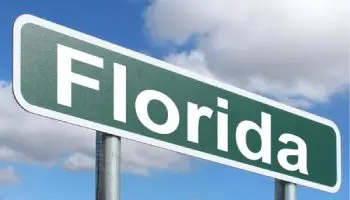State of Online Gambling in Florida


Florida commonly referred to as the sunshine state, is one of America’s most visited recreational hubs. Its famous cities like Miami have beautiful beaches, fantastic weather, some of the world’s best-shopping outlets, a crazy nightlife, but even more known for its vibrant gambling culture. The local laws have always supported local land-based casinos, even those owned by the Seminole tribe but what about online casinos? When it comes to online gambling, this has always been a grey area in America, but in 2018, the supreme court legalized online sports betting, giving the green light to states willing to implement this into local law. Legalized online gambling sites and casinos in America have since set up operations in individual states, offering their customers some of the best-betting markets on sports events and authorized casino games. This was a significant step towards normalizing online gambling in the States, but some areas in America like Florida are dragging behind for some reason. Let us review recent developments in the sunshine state.
The Online Gambling Regulation Delay in Florida
 Florida has always been friendly to laws developing the growing gambling industry since 1931. The authorized forms of gambling to start with were dog races and horse races. As betting grew to a significant market, some neighboring states followed Florida’s example to increase wagering in their jurisdiction. Online gambling was heavily opposed in America due to the negative effects it would have on some of its industries and the population. However, after the supreme court's approval to legalize some forms of online betting in 2018, Florida was among the American states. Everyone expected that they would readily jump into the sports betting legalization wave. The reality, however, is that sports betting is still illegal as well as online poker. The only legalized betting is on horse racing. Greyhound races were officially banned in 2018 after legislators voted for the ban. In 2020, Florida’s senator has tabled three new bills in favor of sports betting, recommending that the state lottery is in charge of all sports betting operations. Several factors complicate the legalization process in Florida, including the strong tribal presence in the local casino industry by the Seminole tribe. In 2018, Florida also passed a constitutional amendment that imposed further complications in expanding the local gambling industry. The amendment stipulated that any expansion would have to be subjected to a statewide voting process that is harder to articulate. In the meantime, Florida residents can only bet online using online casino platforms based in other regions in legalized states or foreign gambling operators. This leaks significant revenues from the sunshine state, something that legislators ought to consider.
Florida has always been friendly to laws developing the growing gambling industry since 1931. The authorized forms of gambling to start with were dog races and horse races. As betting grew to a significant market, some neighboring states followed Florida’s example to increase wagering in their jurisdiction. Online gambling was heavily opposed in America due to the negative effects it would have on some of its industries and the population. However, after the supreme court's approval to legalize some forms of online betting in 2018, Florida was among the American states. Everyone expected that they would readily jump into the sports betting legalization wave. The reality, however, is that sports betting is still illegal as well as online poker. The only legalized betting is on horse racing. Greyhound races were officially banned in 2018 after legislators voted for the ban. In 2020, Florida’s senator has tabled three new bills in favor of sports betting, recommending that the state lottery is in charge of all sports betting operations. Several factors complicate the legalization process in Florida, including the strong tribal presence in the local casino industry by the Seminole tribe. In 2018, Florida also passed a constitutional amendment that imposed further complications in expanding the local gambling industry. The amendment stipulated that any expansion would have to be subjected to a statewide voting process that is harder to articulate. In the meantime, Florida residents can only bet online using online casino platforms based in other regions in legalized states or foreign gambling operators. This leaks significant revenues from the sunshine state, something that legislators ought to consider.
Comparing Florida with other States that have Legalized
States like Nevada, New Jersey, Pennsylvania, Mississippi, and many others that have legalized are already handling millions of dollars and helping generate massive income for local administrations through taxation. In new sports betting revenue reports, all states that have legalized have recorded fascinating growth in their last financial year, handling an overall figure of $23,310,011,794, generating total revenue of $1,621,672,786 and filling tax of $223,875,456. This, despite the ongoing pandemic affecting businesses across America. Such revenues have given the individual states a desperately needed financial lifeline and presented local gamers with alternative channels to raise income during the lockdown. Florida is not alone in delaying legalization. States like Alabama, South Carolina, and Georgia prohibit gambling and impose heavy punishment, including hefty fines on gamblers. However, it is expected that soon, many states will pass laws that create a friendly environment for online gambling given the growth potential and the reported revenues that such states are losing to neighboring states that have already made the transition. The next decade holds much promise for online casinos and setting up internet cafes, all thanks to the ripple effect created by the supreme court to legalize sports betting.
What the Future Holds for Florida

Currently, Florida is waiting to debate and vote on the Senator's tabled legalization bills. The government is also in deep talks with the local tribal casino operators to find a middle ground in the expansion process. Governor Ron DeSantis has already organized several sit-downs this year with leaders of the Seminole tribe, leaders of pari-mutuel gambling faction who represent some of the family-owned casinos in Florida. Before the nature of the local gambling industry changes, the tribal casinos continue making $350 million annual payment to the state, but things might change depending on legislations made in the next few years. Several fallouts have characterized talks between local tribal casino operators and government representatives. In recent events, the tribes refused to continue with the $350 million annual payment, and in retaliation, the local government cut off the tribe in its budget. The government has to seek alternative channels to increase revenues from the local gambling industry that holds immense potential; this entails changing their stand on online gambling regulations to allow local casinos to venture online. This is the inevitable future Florida has to embrace.
Recommended Reading: Online Casinos In The USA
Was this article helpful?


